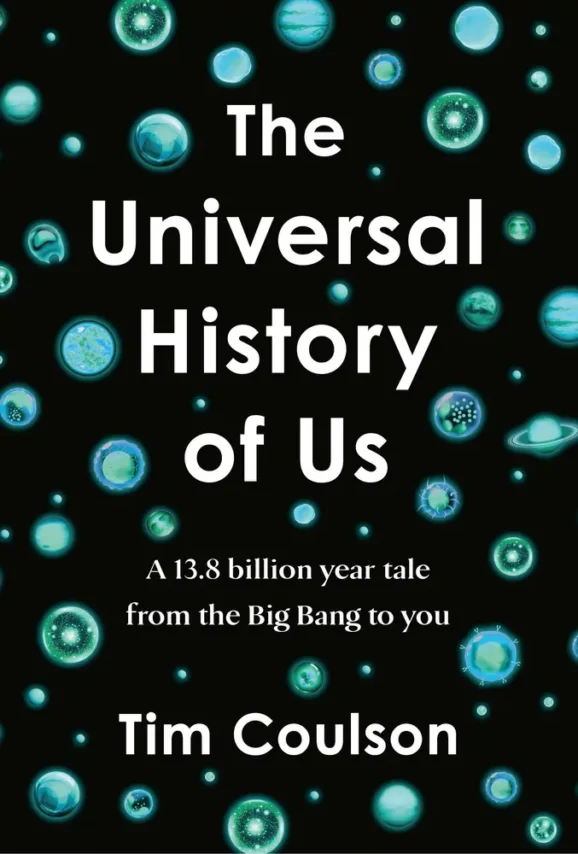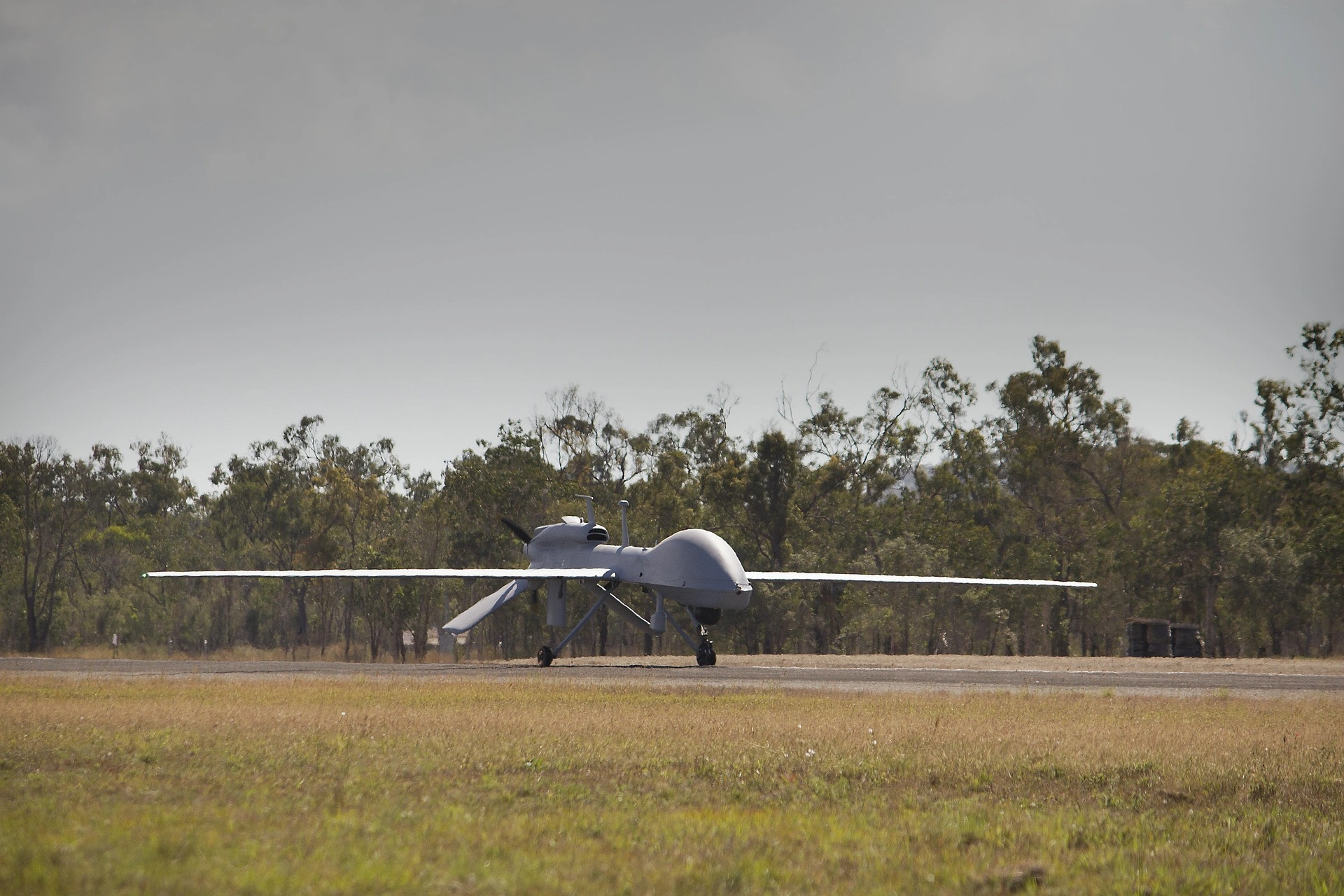Professor Tim Coulson on Evolution and Human Extinction—and His Surprising Pick for Earth’s Next Rulers

Professor Tim Coulson
- Published
- Authors, Opinion & Analysis, Science

The European: To start with some basics, could you explain what evolution is and why it’s such a fundamental process for life on Earth? How does it work over generations to influence which species thrive or decline?
Professor Tim Coulson:
Evolution is a process of gradual change in living organisms over time as they better adapt to their environments. The fuel for evolution is genetic mutation – changes in DNA. Most mutations are harmful, but a few provide a survival or reproductive advantage. Because genes are heritable, being passed from parents to offspring, beneficial mutations become more common as those individuals with beneficial mutations have more babies.
Genetic mutations alter characteristics of individuals. A mutation might make an individual taller, faster moving, better able to fight infection, or to escape from a predator. Over generations, small genetic changes accumulate, and species slowly change. This fundamental process underpins the diversity of life on Earth, explaining how organisms evolve and adapt in response to shifting environmental pressures and opportunities.
Life on Earth has been evolving for four billion years, with animals emerging around 600 million years ago, and Homo sapiens evolving approximately quarter of a million years ago. Humans are still evolving today, although the pressures and environmental factors influencing us are different from those affecting our ancestors.
Your new book, The Universal History of Us, examines what had to happen for you and me to exist. Given your expertise, what are your thoughts on the future of life on our planet, particularly in the event of human extinction?
In The Universal History of Us, I trace the history of the universe from the Big Bang to you and me. Extinction is the fate of all species, including humans, although let’s hope our demise is far in the future. I started to wonder what species might take our place if humans, and our close great ape relatives, were to die out. Which species might thrive, filling niches left open by humanity’s absence.
The future of life on Earth would likely see ecosystems rebalancing and new forms of intelligence and complexity emerging in unexpected ways. Without humans as the dominant species, other species could gradually take on new ecological roles, though they might not resemble anything akin to human civilisation. Life will likely persist on Earth for another billion years, so I pondered which species might take our place, building the first non-human civilsation.
Primates are often seen as the logical successors to humans because of their intelligence. Do you agree with that?
Hominids such as chimpanzees and bonobos are intelligent animals with opposable thumbs, tool-using abilities, and, at least for short distances, the capacity to walk on two legs, traits shared with us. Despite these similarities, they would likely face extinction alongside humans, as they are equally exposed to threats in our shared environment.
Even if some primates did endure, they would encounter significant challenges: their population sizes are small, they are restricted to a few forest habitats and have slow growth and reproduction rates. Furthermore, primates depend heavily on strong social networks, engaging in activities like hunting, grooming, and defence, which are essential for their survival. These constraints might help them struggle to adjust to a world undergoing dramatic ecological shifts.
Dolphins, bird species, and even some invertebrates are known for their high intellect. Could they potentially develop advanced societies?
Certain birds, like crows, ravens, and parrots, are remarkably intelligent being able to solve quite complex puzzles. They can also build shared nesting areas that can endure for many years, fostering long-term community bonds and a type of simple culture.
Some insect species construct intricate, towering habitats that echo the complexity and organisation found in human societies, although this behaviour is driven by instinct (genetics) more than intelligence.
However, it’s unlikely that birds or insects could take over the ecological role once occupied by humans, as they lack the fine motor skills needed to construct a civilisation.
Octopuses, on the other hand, are a potentially better candidate for filling an ecological niche in a post-human world.
Why octopuses? What makes them such strong contenders in the evolutionary race?
Octopuses are among the most intelligent, adaptable, and resourceful creatures on Earth.
Their ability to solve complex problems, communicate with one another in flashes of colour, manipulate objects, and even camouflage themselves with stunning precision suggests that, given the right environmental conditions, they could evolve into a civilisation-building species following the extinction of humans.
Their advanced neural structure, decentralized nervous system, and remarkable problem-solving skills make several species of octopus well suited for an unpredictable world.
These qualities could allow them to exploit new niches and adapt to a changing planet, especially in the absence of human influence.
You mentioned their intelligence. Could you elaborate on their cognitive abilities and how these might contribute to their potential success?
In a world where mammals dominate, octopuses remain an underappreciated contender. Their advanced cognition, tool-use, and ability to adapt to changing environments provide a blueprint for what might emerge as the planet’s next intelligent species after humans. Some individuals even escape from their tanks at night in some research centres, visiting those of their neighbours believe it or not.
Their dexterity is clearly a significant advantage. How does this compare to other species, such as primates, who are often considered our closest relatives?
Octopuses are capable of distinguishing between real and virtual objects, solving puzzles, interacting with their environment, handling intricate tools with their thumb-like tentacles, and thriving in a wide variety of habitats, from deep-sea trenches to coastal regions.
It’s intriguing to imagine these underwater cities you describe. But could octopuses ever truly conquer land?
I am of course speculating, but their dexterity and intelligence makes them a strong candidate to evolve to build civilisation. Octopuses are unlikely to adapt to life on land due to their lack of a skeleton, which makes swift and agile movement out of water challenging. However, these creatures—some reaching up to 20 feet in length and weighing around 110 pounds—could potentially construct underwater communities resembling cities we see on land. But it may take them hundreds of thousands or even millions of years to evolve to do this. With evolutionary advances, it is possible, if not probable, that they might develop ways to breathe outside of water and eventually hunt terrestrial animals like deer, sheep, and other mammals – assuming they have survived the catastrophic event that drove humans extinct.
Do you believe octopuses could truly step into humanity’s shoes?
It’s important to remember that these are just possibilities, and that it’s impossible to predict with any degree of certainty how evolution will unfold over extended periods.
Random mutations, unforeseen extinction events, and population bottlenecks can all significantly influence the trajectory of evolution, making it challenging to determine whether another species will develop human-level intelligence or the inclination to construct cities.
But could octopuses replace humans – and potentially also primates – if they were to die out? Absolutely. They could become the brains of the sea.
There’s a certain science fiction quality to these possibilities. How seriously should we take this idea of an octopus takeover?
Would octopuses build vast underwater cities and come onto land wearing breathing apparatus to shoot a deer? We’ve no way of knowing. But we certainly can’t rule it out. Would have predicted our ancestors living a few million years ago would evolve into humans and dominate the planet? Probably not. Yet humans learned to catch fish and to navigate over and under water, so it is also possible, if not probable, that octopuses might do the same on land.
Of course, the rise of the octopuses is all speculative: evolution is unpredictable, and we can’t say with certainty what path it will take in the event of human extinction.
The future of life on Earth is shaped by countless variables, and any number of species could rise to prominence. That said, given the octopus’s remarkable intelligence, adaptability, and diverse range of survival strategies, it wouldn’t be the most far-fetched bet to imagine them thriving in a post-human world.

RECENT ARTICLES
-
 Europe’s leading defence powers launch joint drone and autonomous systems programme
Europe’s leading defence powers launch joint drone and autonomous systems programme -
 Euro-zone business activity accelerates as manufacturing returns to expansion
Euro-zone business activity accelerates as manufacturing returns to expansion -
 Deepfake celebrity ads drive new wave of investment scams
Deepfake celebrity ads drive new wave of investment scams -
 WATCH: Red Bull pilot lands plane on moving freight train in aviation first
WATCH: Red Bull pilot lands plane on moving freight train in aviation first -
 Europe eyes Australia-style social media crackdown for children
Europe eyes Australia-style social media crackdown for children -
 These European hotels have just been named Five-Star in Forbes Travel Guide’s 2026 awards
These European hotels have just been named Five-Star in Forbes Travel Guide’s 2026 awards -
 McDonald’s Valentine’s ‘McNugget Caviar’ giveaway sells out within minutes
McDonald’s Valentine’s ‘McNugget Caviar’ giveaway sells out within minutes -
 Europe opens NanoIC pilot line to design the computer chips of the 2030s
Europe opens NanoIC pilot line to design the computer chips of the 2030s -
 Zanzibar’s tourism boom ‘exposes new investment opportunities beyond hotels’
Zanzibar’s tourism boom ‘exposes new investment opportunities beyond hotels’ -
 Gen Z set to make up 34% of global workforce by 2034, new report says
Gen Z set to make up 34% of global workforce by 2034, new report says -
 The ideas and discoveries reshaping our future: Science Matters Volume 3, out now
The ideas and discoveries reshaping our future: Science Matters Volume 3, out now -
 Lasers finally unlock mystery of Charles Darwin’s specimen jars
Lasers finally unlock mystery of Charles Darwin’s specimen jars -
 Strong ESG records help firms take R&D global, study finds
Strong ESG records help firms take R&D global, study finds -
 European Commission issues new cancer prevention guidance as EU records 2.7m cases in a year
European Commission issues new cancer prevention guidance as EU records 2.7m cases in a year -
 Artemis II set to carry astronauts around the Moon for first time in 50 years
Artemis II set to carry astronauts around the Moon for first time in 50 years -
 Meet the AI-powered robot that can sort, load and run your laundry on its own
Meet the AI-powered robot that can sort, load and run your laundry on its own -
 Wingsuit skydivers blast through world’s tallest hotel at 124mph in Dubai stunt
Wingsuit skydivers blast through world’s tallest hotel at 124mph in Dubai stunt -
 Centrum Air to launch first European route with Tashkent–Frankfurt flights
Centrum Air to launch first European route with Tashkent–Frankfurt flights -
 UK organisations still falling short on GDPR compliance, benchmark report finds
UK organisations still falling short on GDPR compliance, benchmark report finds -
 Stanley Johnson appears on Ugandan national television during visit highlighting wildlife and conservation ties
Stanley Johnson appears on Ugandan national television during visit highlighting wildlife and conservation ties -
 Anniversary marks first civilian voyage to Antarctica 60 years ago
Anniversary marks first civilian voyage to Antarctica 60 years ago -
 Etihad ranked world’s safest airline for 2026
Etihad ranked world’s safest airline for 2026 -
 Read it here: Asset Management Matters — new supplement out now
Read it here: Asset Management Matters — new supplement out now -
 Breakthroughs that change how we understand health, biology and risk: the new Science Matters supplement is out now
Breakthroughs that change how we understand health, biology and risk: the new Science Matters supplement is out now -
 The new Residence & Citizenship Planning supplement: out now
The new Residence & Citizenship Planning supplement: out now



























